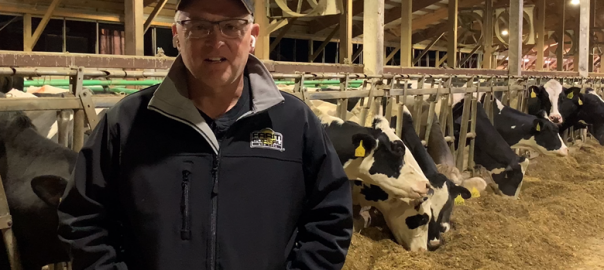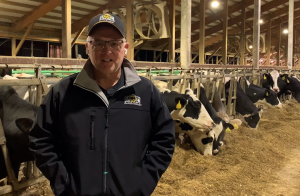
Agriculture – Recognizing Advances in Science Makes for Better Farm Policy

Science has always been a farmer’s guide. It has helped us better manage our natural resources, improve the health and nutrition for our animals, and reduce pesticide use. Environmental issues are farming issues. Perhaps no other part of our economy is impacted more by climate change than agriculture, but when science is discarded in the decision-making process as it relates to agriculture, ill effects can make things much worse.
For starters, there is an effort to ban neonicotinoid seed treatments, as well as the products’ use on ornamental trees and shrubs, and turf. These are valuable precision tools to fight pests used by many corn, soybean and wheat farmers. As more of our farms turn to no-till and cover crops to improve soil health and sequester carbon, the improved soil biology also attracts additional pests, like wire worm and seed corn maggots, that can proliferate and do real damage to a crop. The seeds are treated before they go into the ground, the equivalent of less than one ounce of pesticide per acre and are part of a farm’s risk management process to prevent the seeds from being eaten. They were partially developed to greatly reduce the amount of pesticides that would be needed to be sprayed. The treated seeds may help protect against one pest this year and another the next. If we lose a crop to pests in the planting process, replanting costs additional money and significantly reduces crop yield because of the shortened growing season.
Neonics were developed as a much safer pesticide for the user as well as for the environment. The alternative would be to return toxic pesticides of the past that were not as safe for the environment or for the person applying them. It will also mean plowing up more fields every year to fight off pests, releasing more carbon and increasing the risk of erosion of our valuable topsoil. This also would result in more tillage passes to break up the ground, using more fossil fuels. Using less climate resilient practices would be moving in the wrong direction.
Farmers also use science in guiding our efforts to protect pollinators and reduce any impact neonics may pose. Farmers need pollinators or else we won’t have a crop. New York’s Pollinator Management Plan is recognized nationally for its effective best management practices to support pollinator health which continues to improve in our state. The Management Plan is demonstrating its effectiveness as pollinator health continues to improve.
An outright ban on neonics ignores the research that has gone into this class of pesticide and also ignores the real work that has gone on in this state to reduce pesticide use and protect the health of bees and other pollinators that farms depend on every planting season. It also isn’t feasible asking each farm to go through a public notification and hearing process to prove there is no other alternative to these treated seeds. The unintended consequences may actually create bigger issues as we aim to meet greenhouse gas reduction benchmarks.
Another bill being considered in the New York State Legislature that would have a detrimental impact across agriculture is the Extended Producer Responsibility Act, a new statewide recycling program that would put the farm and forestry community in charge of the waste stream they generate and have negative impacts on the wine, dairy, and maple sectors among others. No longer would private waste companies be responsible for the packaging that goes into the recycling bin. Instead, the economic burden would fall to the people whose products are in the wine bottles, milk cartons, and maple jugs. The higher costs must be absorbed by the farmers, but ultimately higher production costs translate into higher consumer costs, either way it is a losing proposition, especially as prices are already climbing across the board for consumer goods related to the pandemic. The EPR bill has too many unknown variables as it creates two new bureaucracies in state government. We need a better recycling system in this state, but let’s do the proper research to do it right.
Finally, the Climate and Community Investment Act looks to tax carbon emissions and carbon-based fuel use in the state. That alone, by some estimates, could mean a 55-cent increase per gallon of gas in New York State. We understand the need to be mindful of our planet, which is why agriculture has made major inroads in sustainability and greenhouse gas reduction efforts. Biofuels have reduced greenhouse gas emissions by 980 metric tons since 2008, that is like taking 18-million cars off the road annually. Dairy and beef production increased while reducing emissions 28% and 16% respectively. The dairy industry has committed to net-zero emissions by 2050. Farmers are investing in technologies to mitigate methane, adopting renewable energy technologies on farm, and increasing practices to help sequester carbon in soils. Imposing additional carbon taxes while we are in the process of implementing the Climate Leadership and Community Protection Act that set the state’s goal of being carbon neutral by 2050 will be incredibly costly, driving jobs and production out of our state.
These are all major issues that will impact agriculture across the board. We simply ask lawmakers to work with the farming community to be better stewards of the environment, look at the research and the success already underway, and realize the negative consequences of the legislation for our farms, employees and consumers.
David Fisher, New York Farm Bureau President and dairy farmer.
